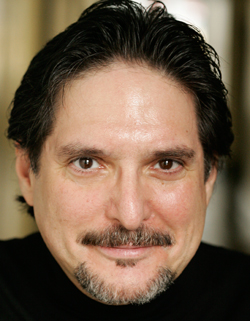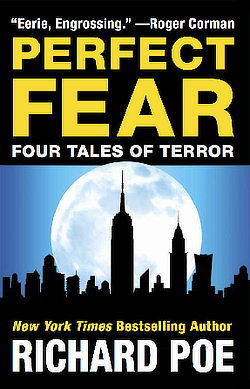Chant the Rosary… in Latin!
|
by Richard Poe Saturday, July 7, 2007 7:00 am Eastern Time |
Archives 5 Comments |
posted 07.07.07, last updated 08.27.07
 |
The Rosary is a chain of beads used for counting prayers. Roman Catholics recite the Rosary as a special devotion to the Virgin Mary.
In addition to reciting the Rosary, one may also sing it. There are many ways to sing the Rosary. The method described here is just one of them. No single approach is authorized or mandated by the Church. Still, the technique set forth below carries a certain weight of tradition, for it draws, wherever possible, on the most venerable customs and practices of our Catholic ancestors.
Most of the prayers recited in the Rosary — the Our Father, the Hail Mary, the Glory Be, the Salve Regina and so on — have been sung for centuries in the form of Gregorian chants. I do not know if these chants were ever used for the specific purpose of singing the Rosary, but it seems likely.
Wherever I could find free audio files on the Internet featuring traditional chants corresponding to the Rosary prayers, I linked to them here. In several instances where I could not find traditional chants — (or, in the case of Salve Regina, could not find a recorded version which included the necessary coda, “Prayer Concluding the Rosary”) — I commissioned composer David Yeagley to write new chants in the traditional style.

To the Sorrowful and Immaculate Heart of Mary, Queen of the Most Holy Rosary, I dedicate this work. And to my readers, I commend the “Solemn Act of Consecration to the Immaculate Heart of Mary” declared by Pope Pius XII on October 13, 1942, in which he prayed to the Blessed Mother, “Save us from the spreading flood of modern paganism; kindle in our hearts and homes the love of purity, the practice of a virtuous life, an ardent zeal for souls, and a desire to pray the Rosary more faithfully.” |
A Work in Progress
As of this writing, I have not yet found or commissioned a chant for the Apostle’s Creed, but will fill this gap when I can. For better or worse, I set a goal of posting this article on July 7, 2007 — the seventh day of the seventh month of the seventh year of the new millennium — and so I have, warts and all.
This is still a work in progress. If any readers know of free audio links of traditional chants which would help complete or enhance this page, please e-mail your suggestions to me.
Traditional-minded Roman Catholics eager to begin chanting their Rosaries, will, I hope, find the resources below of some assistance. If even a few inquiring souls are encouraged thereby to embark upon a deeper, more rigorous, exploration of Christian chant, and of the mysteries of the Rosary itself, my efforts will have been well spent.
|
FreeRepublic Comments








Don’t forget the Luminous Mysteries, which are said on Thursdays. Although they are a recent addition, they are nonetheless edifying and no less worthy of meditation.
They are:
1. The Baptism of Jesus
2. The Wedding at Cana
3. The Proclamation of the Kingdom of God
4. The Transfiguration
5. The Last Supper
Don’t worry, ScreamingBolshevik. I have not forgotten the Luminous Mysteries.
As you may have noticed, I am still working on the footnotes. I plan to include a comment on the Luminous Mysteries, explaining what they are, and why I chose not to feature them in this particular tutorial.
My understanding is that the Luminous Mysteries were proposed by Pope John Paul II, but are still considered optional.
A woman named Katherine posted a touching testimonial at David Yeagley’s blog BadEagle.com. Addressing Dr. Yeagley, she wrote:
Mr, Poe, you are correct; the Luminous Mysteries are optional. In fact, ALL mysteries are optional. The suggestions of certain days for certain mysteries are just that, suggestions.
I pray the Sorrowful Mysteries exclusively. Keeps me grounded as to what Our Lord did for us.
Thank you for the Latin chant. We need this so badly. I’m hoping to learn the Whole Rosary by January when the TLM starts in my parish.